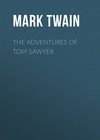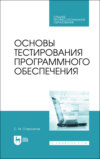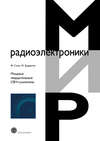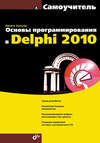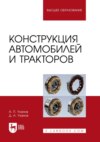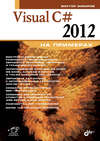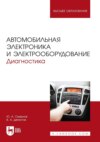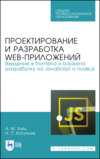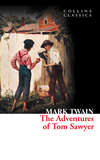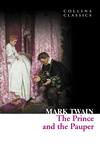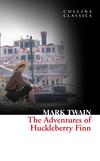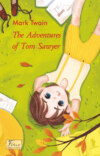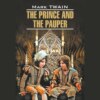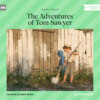Loe raamatut: «The Adventures of Tom Sawyer», lehekülg 13
Chapter XXX
AS the earliest suspicion of dawn appeared on Sunday morning, Huck came groping up the hill and rapped gently at the old Welshman's door. The inmates were asleep, but it was a sleep that was set on a hair-trigger, on account of the exciting episode of the night. A call came from a window:
"Who's there!"
Huck's scared voice answered in a low tone:
"Please let me in! It's only Huck Finn!"
"It's a name that can open this door night or day, lad! – and welcome!"
These were strange words to the vagabond boy's ears, and the pleasantest he had ever heard. He could not recollect that the closing word had ever been applied in his case before. The door was quickly unlocked, and he entered. Huck was given a seat and the old man and his brace of tall sons speedily dressed themselves.
"Now, my boy, I hope you're good and hungry, because breakfast will be ready as soon as the sun's up, and we'll have a piping hot one, too – make your self easy about that! I and the boys hoped you'd turn up and stop here last night."
"I was awful scared," said Huck, "and I run. I took out when the pistols went off, and I didn't stop for three mile. I've come now becuz I wanted to know about it, you know; and I come before daylight becuz I didn't want to run across them devils, even if they was dead."
"Well, poor chap, you do look as if you'd had a hard night of it – but there's a bed here for you when you've had your breakfast. No, they ain't dead, lad – we are sorry enough for that. You see we knew right where to put our hands on them, by your description; so we crept along on tiptoe till we got within fifteen feet of them – dark as a cellar that sumach path was – and just then I found I was going to sneeze. It was the meanest kind of luck! I tried to keep it back, but no use – 'twas bound to come, and it did come! I was in the lead with my pistol raised, and when the sneeze started those scoundrels a-rustling to get out of the path, I sung out, 'Fire boys!' and blazed away at the place where the rustling was. So did the boys. But they were off in a jiffy, those villains, and we after them, down through the woods. I judge we never touched them. They fired a shot apiece as they started, but their bullets whizzed by and didn't do us any harm. As soon as we lost the sound of their feet we quit chasing, and went down and stirred up the constables. They got a posse together, and went off to guard the river bank, and as soon as it is light the sheriff and a gang are going to beat up the woods. My boys will be with them presently. I wish we had some sort of description of those rascals – 'twould help a good deal. But you couldn't see what they were like, in the dark, lad, I suppose?"
"Oh yes; I saw them down-town and follered them."
"Splendid! Describe them – describe them, my boy!"
"One's the old deaf and dumb Spaniard that's ben around here once or twice, and t'other's a mean-looking, ragged – "
"That's enough, lad, we know the men! Happened on them in the woods back of the widow's one day, and they slunk away. Off with you, boys, and tell the sheriff – get your breakfast to-morrow morning!"
The Welshman's sons departed at once. As they were leaving the room Huck sprang up and exclaimed:
"Oh, please don't tell ANYbody it was me that blowed on them! Oh, please!"
"All right if you say it, Huck, but you ought to have the credit of what you did."
"Oh no, no! Please don't tell!"
When the young men were gone, the old Welshman said:
"They won't tell – and I won't. But why don't you want it known?"
Huck would not explain, further than to say that he already knew too much about one of those men and would not have the man know that he knew any thing against him for the whole world – he would be killed for knowing it, sure.
The old man promised secrecy once more, and said:
"How did you come to follow these fellows, lad? Were they looking suspicious?"
Huck was silent while he framed a duly cautious reply. Then he said:
"Well, you see, I'm a kind of a hard lot, – least everybody says so, and I don't see nothing agin it – and sometimes I can't sleep much, on account of thinking about it and sort of trying to strike out a new way of doing. That was the way of it last night. I couldn't sleep, and so I come along up-street 'bout midnight, a-turning it all over, and when I got to that old shackly brick store by the Temperance Tavern, I backed up agin the wall to have another think. Well, just then along comes these two chaps slipping along close by me, with something under their arm, and I reckoned they'd stole it. One was a-smoking, and t'other one wanted a light; so they stopped right before me and the cigars lit up their faces and I see that the big one was the deaf and dumb Spaniard, by his white whiskers and the patch on his eye, and t'other one was a rusty, ragged-looking devil."
"Could you see the rags by the light of the cigars?"
This staggered Huck for a moment. Then he said:
"Well, I don't know – but somehow it seems as if I did."
"Then they went on, and you – "
"Follered 'em – yes. That was it. I wanted to see what was up – they sneaked along so. I dogged 'em to the widder's stile, and stood in the dark and heard the ragged one beg for the widder, and the Spaniard swear he'd spile her looks just as I told you and your two – "
"What! The DEAF AND DUMB man said all that!"
Huck had made another terrible mistake! He was trying his best to keep the old man from getting the faintest hint of who the Spaniard might be, and yet his tongue seemed determined to get him into trouble in spite of all he could do. He made several efforts to creep out of his scrape, but the old man's eye was upon him and he made blunder after blunder. Presently the Welshman said:
"My boy, don't be afraid of me. I wouldn't hurt a hair of your head for all the world. No – I'd protect you – I'd protect you. This Spaniard is not deaf and dumb; you've let that slip without intending it; you can't cover that up now. You know something about that Spaniard that you want to keep dark. Now trust me – tell me what it is, and trust me – I won't betray you."
Huck looked into the old man's honest eyes a moment, then bent over and whispered in his ear:
"'Tain't a Spaniard – it's Injun Joe!"
The Welshman almost jumped out of his chair. In a moment he said:
"It's all plain enough, now. When you talked about notching ears and slitting noses I judged that that was your own embellishment, because white men don't take that sort of revenge. But an Injun! That's a different matter altogether."
During breakfast the talk went on, and in the course of it the old man said that the last thing which he and his sons had done, before going to bed, was to get a lantern and examine the stile and its vicinity for marks of blood. They found none, but captured a bulky bundle of -
"Of WHAT?"
If the words had been lightning they could not have leaped with a more stunning suddenness from Huck's blanched lips. His eyes were staring wide, now, and his breath suspended – waiting for the answer. The Welshman started – stared in return – three seconds – five seconds – ten – then replied:
"Of burglar's tools. Why, what's the MATTER with you?"
Huck sank back, panting gently, but deeply, unutterably grateful. The Welshman eyed him gravely, curiously – and presently said:
"Yes, burglar's tools. That appears to relieve you a good deal. But what did give you that turn? What were YOU expecting we'd found?"
Huck was in a close place – the inquiring eye was upon him – he would have given anything for material for a plausible answer – nothing suggested itself – the inquiring eye was boring deeper and deeper – a sense less reply offered – there was no time to weigh it, so at a venture he uttered it – feebly:
"Sunday-school books, maybe."
Poor Huck was too distressed to smile, but the old man laughed loud and joyously, shook up the details of his anatomy from head to foot, and ended by saying that such a laugh was money in a-man's pocket, be cause it cut down the doctor's bill like everything. Then he added:
"Poor old chap, you're white and jaded – you ain't well a bit – no wonder you're a little flighty and off your balance. But you'll come out of it. Rest and sleep will fetch you out all right, I hope."
Huck was irritated to think he had been such a goose and betrayed such a suspicious excitement, for he had dropped the idea that the parcel brought from the tavern was the treasure, as soon as he had heard the talk at the widow's stile. He had only thought it was not the treasure, however – he had not known that it wasn't – and so the suggestion of a captured bundle was too much for his self-possession. But on the whole he felt glad the little episode had happened, for now he knew beyond all question that that bundle was not THE bundle, and so his mind was at rest and exceedingly comfortable. In fact, everything seemed to be drifting just in the right direction, now; the treasure must be still in No. 2, the men would be captured and jailed that day, and he and Tom could seize the gold that night without any trouble or any fear of interruption.
Just as breakfast was completed there was a knock at the door. Huck jumped for a hiding-place, for he had no mind to be connected even remotely with the late event. The Welshman admitted several ladies and gentlemen, among them the Widow Douglas, and noticed that groups of citizens were climbing up the hill – to stare at the stile. So the news had spread. The Welshman had to tell the story of the night to the visitors. The widow's gratitude for her preservation was outspoken.
"Don't say a word about it, madam. There's another that you're more beholden to than you are to me and my boys, maybe, but he don't allow me to tell his name. We wouldn't have been there but for him."
Of course this excited a curiosity so vast that it almost belittled the main matter – but the Welshman allowed it to eat into the vitals of his visitors, and through them be transmitted to the whole town, for he refused to part with his secret. When all else had been learned, the widow said:
"I went to sleep reading in bed and slept straight through all that noise. Why didn't you come and wake me?"
"We judged it warn't worth while. Those fellows warn't likely to come again – they hadn't any tools left to work with, and what was the use of waking you up and scaring you to death? My three negro men stood guard at your house all the rest of the night. They've just come back."
More visitors came, and the story had to be told and retold for a couple of hours more.
There was no Sabbath-school during day-school vacation, but everybody was early at church. The stirring event was well canvassed. News came that not a sign of the two villains had been yet discovered. When the sermon was finished, Judge Thatcher's wife dropped alongside of Mrs. Harper as she moved down the aisle with the crowd and said:
"Is my Becky going to sleep all day? I just expected she would be tired to death."
"Your Becky?"
"Yes," with a startled look – "didn't she stay with you last night?"
"Why, no."
Mrs. Thatcher turned pale, and sank into a pew, just as Aunt Polly, talking briskly with a friend, passed by. Aunt Polly said:
"Good-morning, Mrs. Thatcher. Good-morning, Mrs. Harper. I've got a boy that's turned up missing. I reckon my Tom stayed at your house last night – one of you. And now he's afraid to come to church. I've got to settle with him."
Mrs. Thatcher shook her head feebly and turned paler than ever.
"He didn't stay with us," said Mrs. Harper, be ginning to look uneasy. A marked anxiety came into Aunt Polly's face.
"Joe Harper, have you seen my Tom this morning?"
"No'm."
"When did you see him last?"
Joe tried to remember, but was not sure he could say. The people had stopped moving out of church. Whispers passed along, and a boding uneasiness took possession of every countenance. Children were anxiously questioned, and young teachers. They all said they had not noticed whether Tom and Becky were on board the ferryboat on the homeward trip; it was dark; no one thought of inquiring if any one was missing. One young man finally blurted out his fear that they were still in the cave! Mrs. Thatcher swooned away. Aunt Polly fell to crying and wringing her hands.
The alarm swept from lip to lip, from group to group, from street to street, and within five minutes the bells were wildly clanging and the whole town was up! The Cardiff Hill episode sank into instant in significance, the burglars were forgotten, horses were saddled, skiffs were manned, the ferryboat ordered out, and before the horror was half an hour old, two hundred men were pouring down highroad and river toward the cave.
All the long afternoon the village seemed empty and dead. Many women visited Aunt Polly and Mrs. Thatcher and tried to comfort them. They cried with them, too, and that was still better than words. All the tedious night the town waited for news; but when the morning dawned at last, all the word that came was, "Send more candles – and send food." Mrs. Thatcher was almost crazed; and Aunt Polly, also. Judge Thatcher sent messages of hope and encouragement from the cave, but they conveyed no real cheer.
The old Welshman came home toward daylight, spattered with candle-grease, smeared with clay, and almost worn out. He found Huck still in the bed that had been provided for him, and delirious with fever. The physicians were all at the cave, so the Widow Douglas came and took charge of the patient. She said she would do her best by him, because, whether he was good, bad, or indifferent, he was the Lord's, and nothing that was the Lord's was a thing to be neglected. The Welshman said Huck had good spots in him, and the widow said:
"You can depend on it. That's the Lord's mark. He don't leave it off. He never does. Puts it some where on every creature that comes from his hands."
Early in the forenoon parties of jaded men began to straggle into the village, but the strongest of the citizens continued searching. All the news that could be gained was that remotenesses of the cavern were being ransacked that had never been visited before; that every corner and crevice was going to be thoroughly searched; that wherever one wandered through the maze of passages, lights were to be seen flitting hither and thither in the distance, and shoutings and pistol shots sent their hollow reverberations to the ear down the sombre aisles. In one place, far from the section usually traversed by tourists, the names "BECKY & TOM" had been found traced upon the rocky wall with candle-smoke, and near at hand a grease-soiled bit of ribbon. Mrs. Thatcher recognized the ribbon and cried over it. She said it was the last relic she should ever have of her child; and that no other memorial of her could ever be so precious, because this one parted latest from the living body before the awful death came. Some said that now and then, in the cave, a far-away speck of light would glimmer, and then a glorious shout would burst forth and a score of men go trooping down the echoing aisle – and then a sickening disappointment always followed; the children were not there; it was only a searcher's light.
Three dreadful days and nights dragged their tedious hours along, and the village sank into a hopeless stupor. No one had heart for anything. The accidental discovery, just made, that the proprietor of the Temperance Tavern kept liquor on his premises, scarcely fluttered the public pulse, tremendous as the fact was. In a lucid interval, Huck feebly led up to the subject of taverns, and finally asked – dimly dreading the worst – if anything had been discovered at the Temperance Tavern since he had been ill.
"Yes," said the widow.
Huck started up in bed, wild-eyed:
"What? What was it?"
"Liquor! – and the place has been shut up. Lie down, child – what a turn you did give me!"
"Only tell me just one thing – only just one – please! Was it Tom Sawyer that found it?"
The widow burst into tears. "Hush, hush, child, hush! I've told you before, you must NOT talk. You are very, very sick!"
Then nothing but liquor had been found; there would have been a great powwow if it had been the gold. So the treasure was gone forever – gone forever! But what could she be crying about? Curious that she should cry.
These thoughts worked their dim way through Huck's mind, and under the weariness they gave him he fell asleep. The widow said to herself:
"There – he's asleep, poor wreck. Tom Sawyer find it! Pity but somebody could find Tom Sawyer! Ah, there ain't many left, now, that's got hope enough, or strength enough, either, to go on searching."
Chapter XXXI
NOW to return to Tom and Becky's share in the picnic. They tripped along the murky aisles with the rest of the company, visiting the familiar wonders of the cave – wonders dubbed with rather over descriptive names, such as "The Drawing-Room," "The Cathedral," "Aladdin's Palace," and so on. Presently the hide-and-seek frolicking began, and Tom and Becky engaged in it with zeal until the exertion began to grow a trifle wearisome; then they wandered down a sinuous avenue holding their candles aloft and reading the tangled web-work of names, dates, post-office addresses, and mottoes with which the rocky walls had been frescoed (in candle-smoke). Still drifting along and talking, they scarcely noticed that they were now in a part of the cave whose walls were not frescoed. They smoked their own names under an overhanging shelf and moved on. Presently they came to a place where a little stream of water, trickling over a ledge and carrying a limestone sediment with it, had, in the slow-dragging ages, formed a laced and ruffled Niagara in gleaming and imperishable stone. Tom squeezed his small body behind it in order to illuminate it for Becky's gratification. He found that it curtained a sort of steep natural stairway which was enclosed between narrow walls, and at once the ambition to be a discoverer seized him. Becky responded to his call, and they made a smoke-mark for future guidance, and started upon their quest. They wound this way and that, far down into the secret depths of the cave, made another mark, and branched off in search of novelties to tell the upper world about. In one place they found a spacious cavern, from whose ceiling depended a multitude of shining stalactites of the length and circumference of a man's leg; they walked all about it, wondering and admiring, and presently left it by one of the numerous passages that opened into it. This shortly brought them to a be witching spring, whose basin was incrusted with a frostwork of glittering crystals; it was in the midst of a cavern whose walls were supported by many fantastic pillars which had been formed by the joining of great stalactites and stalagmites together, the result of the ceaseless water-drip of centuries. Under the roof vast knots of bats had packed themselves together, thousands in a bunch; the lights disturbed the creatures and they came flocking down by hundreds, squeaking and darting furiously at the candles. Tom knew their ways and the danger of this sort of conduct. He seized Becky's hand and hurried her into the first corridor that offered; and none too soon, for a bat struck Becky's light out with its wing while she was passing out of the cavern. The bats chased the children a good distance; but the fugitives plunged into every new passage that offered, and at last got rid of the perilous things. Tom found a subterranean lake, shortly, which stretched its dim length away until its shape was lost in the shadows. He wanted to explore its borders, but concluded that it would be best to sit down and rest awhile, first. Now, for the first time, the deep stillness of the place laid a clammy hand upon the spirits of the children. Becky said:
"Why, I didn't notice, but it seems ever so long since I heard any of the others."
"Come to think, Becky, we are away down below them – and I don't know how far away north, or south, or east, or whichever it is. We couldn't hear them here."
Becky grew apprehensive.
"I wonder how long we've been down here, Tom? We better start back."
"Yes, I reckon we better. P'raps we better."
"Can you find the way, Tom? It's all a mixed-up crookedness to me."
"I reckon I could find it – but then the bats. If they put our candles out it will be an awful fix. Let's try some other way, so as not to go through there."
"Well. But I hope we won't get lost. It would be so awful!" and the girl shuddered at the thought of the dreadful possibilities.
They started through a corridor, and traversed it in silence a long way, glancing at each new opening, to see if there was anything familiar about the look of it; but they were all strange. Every time Tom made an examination, Becky would watch his face for an encouraging sign, and he would say cheerily:
"Oh, it's all right. This ain't the one, but we'll come to it right away!"
But he felt less and less hopeful with each failure, and presently began to turn off into diverging avenues at sheer random, in desperate hope of finding the one that was wanted. He still said it was "all right," but there was such a leaden dread at his heart that the words had lost their ring and sounded just as if he had said, "All is lost!" Becky clung to his side in an anguish of fear, and tried hard to keep back the tears, but they would come. At last she said:
"Oh, Tom, never mind the bats, let's go back that way! We seem to get worse and worse off all the time."
"Listen!" said he.
Profound silence; silence so deep that even their breathings were conspicuous in the hush. Tom shout ed. The call went echoing down the empty aisles and died out in the distance in a faint sound that resembled a ripple of mocking laughter.
"Oh, don't do it again, Tom, it is too horrid," said Becky.
"It is horrid, but I better, Becky; they might hear us, you know," and he shouted again.
The "might" was even a chillier horror than the ghostly laughter, it so confessed a perishing hope. The children stood still and listened; but there was no result. Tom turned upon the back track at once, and hurried his steps. It was but a little while be fore a certain indecision in his manner revealed an other fearful fact to Becky – he could not find his way back!
"Oh, Tom, you didn't make any marks!"
"Becky, I was such a fool! Such a fool! I never thought we might want to come back! No – I can't find the way. It's all mixed up."
"Tom, Tom, we're lost! we're lost! We never can get out of this awful place! Oh, why DID we ever leave the others!"
She sank to the ground and burst into such a frenzy of crying that Tom was appalled with the idea that she might die, or lose her reason. He sat down by her and put his arms around her; she buried her face in his bosom, she clung to him, she poured out her terrors, her unavailing regrets, and the far echoes turned them all to jeering laughter. Tom begged her to pluck up hope again, and she said she could not. He fell to blaming and abusing himself for getting her into this miserable situation; this had a better effect. She said she would try to hope again, she would get up and follow wherever he might lead if only he would not talk like that any more. For he was no more to blame than she, she said.
So they moved on again – aimlessly – simply at random – all they could do was to move, keep moving. For a little while, hope made a show of reviving – not with any reason to back it, but only because it is its nature to revive when the spring has not been taken out of it by age and familiarity with failure.
By-and-by Tom took Becky's candle and blew it out. This economy meant so much! Words were not needed. Becky understood, and her hope died again. She knew that Tom had a whole candle and three or four pieces in his pockets – yet he must economize.
By-and-by, fatigue began to assert its claims; the children tried to pay attention, for it was dreadful to think of sitting down when time was grown to be so precious, moving, in some direction, in any direction, was at least progress and might bear fruit; but to sit down was to invite death and shorten its pursuit.
At last Becky's frail limbs refused to carry her farther. She sat down. Tom rested with her, and they talked of home, and the friends there, and the comfortable beds and, above all, the light! Becky cried, and Tom tried to think of some way of comforting her, but all his encouragements were grown thread bare with use, and sounded like sarcasms. Fatigue bore so heavily upon Becky that she drowsed off to sleep. Tom was grateful. He sat looking into her drawn face and saw it grow smooth and natural under the influence of pleasant dreams; and by-and-by a smile dawned and rested there. The peaceful face reflected somewhat of peace and healing into his own spirit, and his thoughts wandered away to bygone times and dreamy memories. While he was deep in his musings, Becky woke up with a breezy little laugh – but it was stricken dead upon her lips, and a groan followed it.
"Oh, how COULD I sleep! I wish I never, never had waked! No! No, I don't, Tom! Don't look so! I won't say it again."
"I'm glad you've slept, Becky; you'll feel rested, now, and we'll find the way out."
"We can try, Tom; but I've seen such a beautiful country in my dream. I reckon we are going there."
"Maybe not, maybe not. Cheer up, Becky, and let's go on trying."
They rose up and wandered along, hand in hand and hopeless. They tried to estimate how long they had been in the cave, but all they knew was that it seemed days and weeks, and yet it was plain that this could not be, for their candles were not gone yet. A long time after this – they could not tell how long – Tom said they must go softly and listen for dripping water – they must find a spring. They found one presently, and Tom said it was time to rest again. Both were cruelly tired, yet Becky said she thought she could go a little farther. She was surprised to hear Tom dissent. She could not understand it. They sat down, and Tom fastened his candle to the wall in front of them with some clay. Thought was soon busy; nothing was said for some time. Then Becky broke the silence:
"Tom, I am so hungry!"
Tom took something out of his pocket.
"Do you remember this?" said he.
Becky almost smiled.
"It's our wedding-cake, Tom."
"Yes – I wish it was as big as a barrel, for it's all we've got."
"I saved it from the picnic for us to dream on, Tom, the way grown-up people do with wedding cake – but it'll be our – "
She dropped the sentence where it was. Tom divided the cake and Becky ate with good appetite, while Tom nibbled at his moiety. There was abundance of cold water to finish the feast with. By-and-by Becky suggested that they move on again. Tom was silent a moment. Then he said:
"Becky, can you bear it if I tell you something?"
Becky's face paled, but she thought she could.
"Well, then, Becky, we must stay here, where there's water to drink. That little piece is our last candle!"
Becky gave loose to tears and wailings. Tom did what he could to comfort her, but with little effect. At length Becky said:
"Tom!"
"Well, Becky?"
"They'll miss us and hunt for us!"
"Yes, they will! Certainly they will!"
"Maybe they're hunting for us now, Tom."
"Why, I reckon maybe they are. I hope they are."
"When would they miss us, Tom?"
"When they get back to the boat, I reckon."
"Tom, it might be dark then – would they notice we hadn't come?"
"I don't know. But anyway, your mother would miss you as soon as they got home."
A frightened look in Becky's face brought Tom to his senses and he saw that he had made a blunder. Becky was not to have gone home that night! The children became silent and thoughtful. In a moment a new burst of grief from Becky showed Tom that the thing in his mind had struck hers also – that the Sabbath morning might be half spent before Mrs. Thatcher discovered that Becky was not at Mrs. Harper's.
The children fastened their eyes upon their bit of candle and watched it melt slowly and pitilessly away; saw the half inch of wick stand alone at last; saw the feeble flame rise and fall, climb the thin column of smoke, linger at its top a moment, and then – the horror of utter darkness reigned!
How long afterward it was that Becky came to a slow consciousness that she was crying in Tom's arms, neither could tell. All that they knew was, that after what seemed a mighty stretch of time, both awoke out of a dead stupor of sleep and resumed their miseries once more. Tom said it might be Sunday, now – maybe Monday. He tried to get Becky to talk, but her sorrows were too oppressive, all her hopes were gone. Tom said that they must have been missed long ago, and no doubt the search was going on. He would shout and maybe some one would come. He tried it; but in the darkness the distant echoes sounded so hideously that he tried it no more.
The hours wasted away, and hunger came to torment the captives again. A portion of Tom's half of the cake was left; they divided and ate it. But they seemed hungrier than before. The poor morsel of food only whetted desire.
By-and-by Tom said:
"SH! Did you hear that?"
Both held their breath and listened. There was a sound like the faintest, far-off shout. Instantly Tom answered it, and leading Becky by the hand, started groping down the corridor in its direction. Presently he listened again; again the sound was heard, and apparently a little nearer.
"It's them!" said Tom; "they're coming! Come along, Becky – we're all right now!"
The joy of the prisoners was almost overwhelming. Their speed was slow, however, because pitfalls were somewhat common, and had to be guarded against. They shortly came to one and had to stop. It might be three feet deep, it might be a hundred – there was no passing it at any rate. Tom got down on his breast and reached as far down as he could. No bottom. They must stay there and wait until the searchers came. They listened; evidently the distant shoutings were growing more distant! a moment or two more and they had gone altogether. The heart-sinking misery of it! Tom whooped until he was hoarse, but it was of no use. He talked hopefully to Becky; but an age of anxious waiting passed and no sounds came again.
